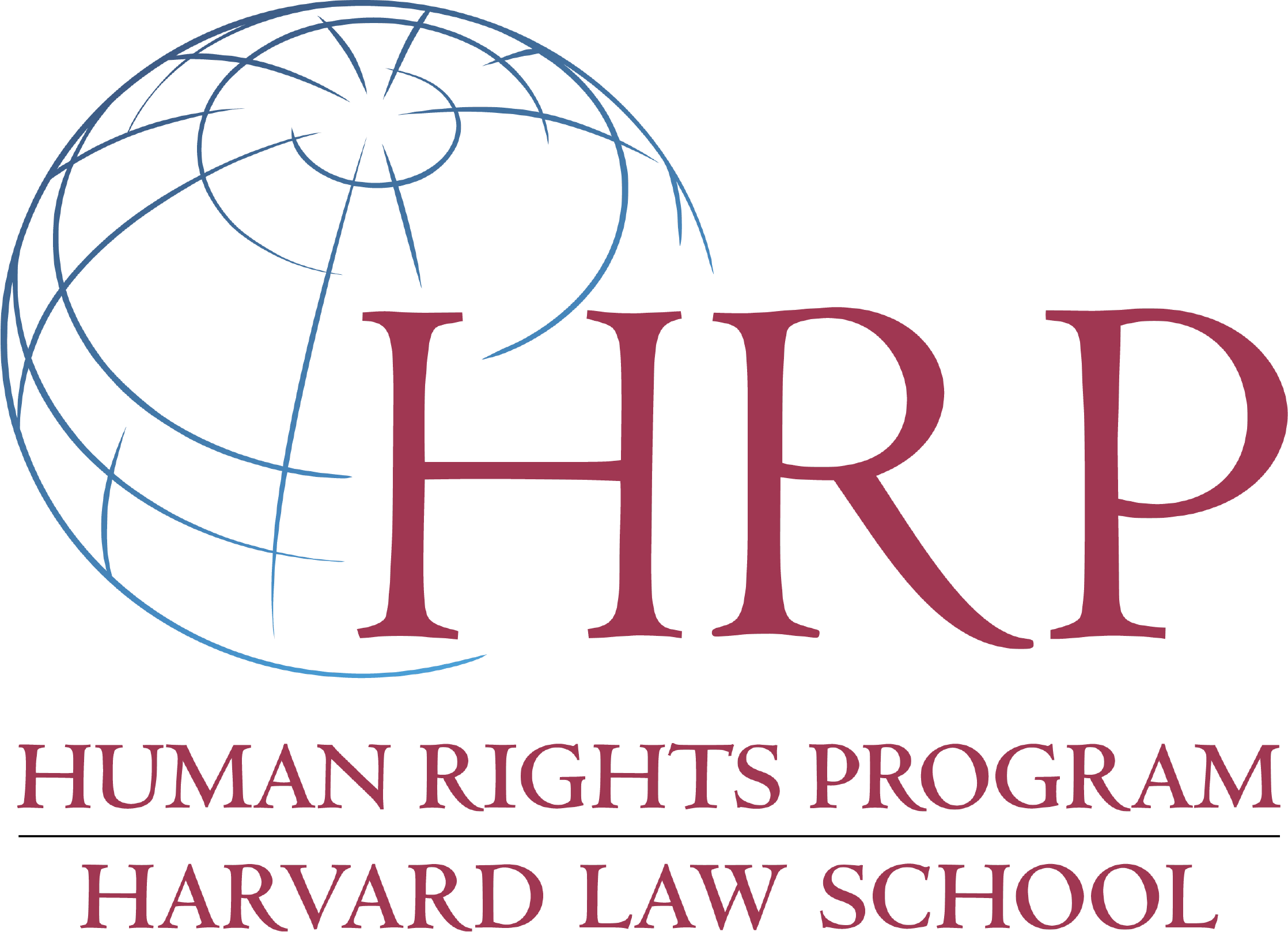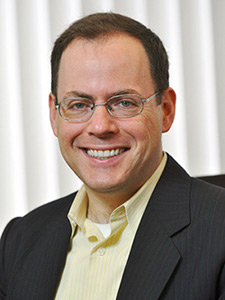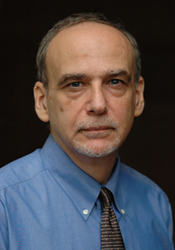
Giannini and Neuman appointed co-directors of the Human Rights Program
Tyler Giannini, Clinical Professor of Law, and Gerald L. Neuman ’80, J. Sinclair Armstrong Professor of International, Foreign and Comparative Law, have been appointed co-directors of the Human Rights Program (HRP) at Harvard Law School.
Said HLS Dean Martha Minow: “I’m delighted to announce Gerry Neuman and Tyler Giannini as co-directors of Harvard’s Human Rights Program. Tyler is a pioneer in the development of theories of liability in the field of human rights, and his efforts have guided our path-breaking clinic and he has collaborated with clinical students and superb colleagues in human rights advocacy pursuing all the available tools—investigations, litigation, media, and coalition-building. Gerry’s distinguished scholarship spans human rights, constitutional law, and regulations of immigration and refugees; his immense expertise in international human rights law includes his invaluable contributions and experiences as a member of the UN’s Human Rights Committee. Outstanding as individuals, Tyler and Gerry are an amazing team, and I look forward to the new initiatives emerging through their collaboration and leadership.”
HRP is the central venue for international human rights work at Harvard Law School, offering students a range of opportunities to engage in academic pursuits and to apply theory to practice, both on campus and abroad. By fostering scholarship, engagement with pressing issues, and training in human rights advocacy, HRP’s faculty has worked for decades to educate students who will become leaders of the human rights movement. Now in its 28th year, HRP was founded by Emeritus Professor Henry Steiner ’55.
“I cannot think of two better people than Gerald Neuman and Tyler Giannini to continue to strengthen HRP as one of the premiere human rights programs in the world,” said Lisa Dealy, assistant dean of Clinical and Pro Bono Programs. “Having them both at the helm of this joint directorship ensures that the International Human Rights Clinic is closely integrated with the academic Human Rights Program, which is greatly beneficial to both the practice on the ground and the broader study of human rights law.”
“It’s an honor to be part of HRP and its long tradition of excellence,” Giannini said. “HRP represents the very best in the Law School’s efforts to combine scholarship and practice in an academic setting. HRP is a place where scholarship is informed by practice through our International Human Rights Clinic, and just as importantly, the efforts of our Clinic are enriched greatly by HRP’s engagement with intellectual pursuits.”
Said Neuman: “I am excited about continuing the Human Rights Program’s tradition of intellectually rigorous engagement with the field of human rights advocacy and implementation. I also hope to build stronger connections with the wider academic community here at HLS, and in the University more generally.”
HRP cultivates coursework and student participation in human rights activities through its summer fellowships, clinical work, Visiting Fellows program, speaker series, applied research, scholarship, including books, and collaborations with student and professional human rights organizations in the United States and abroad. Under the leadership of Neuman and HRP’s Academic Director, Mindy Roseman, the program’s affiliates also plan and direct international conferences and roundtables on human rights issues, and publish regular reports and scholarship resulting from these events.
Led by Giannini and Assistant Clinical Professor Susan Farbstein, the International Human Rights Clinic (IHRC), an independent arm of HRP, mentors and trains students through practical education across the spectrum of human rights issues. Clinical students draft reports and briefs, conduct legal analyses, undertake fact-finding trips, litigate, work with concerned citizens, and advocate for policy change. Areas of faculty specialty include: Alien Tort Statute (ATS) litigation, criminal justice in Latin America, weapons, sexual and reproductive health, civilian protection during times of armed conflict, corporate accountability, protest and assembly rights, and environment and human rights. Clinicians also specialize in geographic areas such as Brazil, Burma, South Africa, and the United States.
“One of the great parts of HRP is being able to work with a community of practitioners and scholars each day on pressing human rights questions,” Giannini said. “In addition to [senior leadership], HRP has another dozen clinical instructors, visiting scholars and fellows each year along with scores of active students involved in human rights research and practice. This creates a vibrant human rights community at the Law School.”
About Tyler Giannini
Giannini’s upcoming clinical work, teaching and research activities will focus on the areas of business and human rights, human rights and community lawyering, human rights and the changes occurring in Burma, and human rights clinical pedagogy.
A specialist on Burma, Southeast Asia, and South Africa, Giannini joined HLS as a clinical advocacy fellow at HRP in 2004. He was appointed as a lecturer on law in 2006, became director of IHRC in 2007 and was appointed as a clinical professor of law in 2010.
Giannini’s theories of tort liability have played a significant role in holding corporations responsible for the human rights ramifications of their enterprise activities. For the past 17 years, he has been a leading ATS litigator.
Recently, for example, in 2012, Giannini and Farbstein filed two amicus curiae briefs before the Supreme Court on behalf of legal historians in the case Kiobel v. Royal Dutch Petroleum Co. The case, one of the most significant human rights cases to be heard by the Supreme Court in recent years, has attracted international attention, the Harvard Gazette recently reported. Brought by 12 Nigerians, the case alleges that the oil company was complicit in torture, extrajudicial executions, and other crimes against humanity during the 1990s.
As one of the architects of the Doe v. Unocal litigation, Giannini helped develop the concept of corporate ATS litigation, one of the most important vehicles for modern international human rights law reform. This precedent-setting ATS litigation concerning the Yadana gas pipeline in Burma resulted in a confidential settlement that is reported to be one of the largest ever in an ATS case.
He also teaches and practices law at the intersection of human rights and the environment. Prior to joining HLS, he co-founded and co-directed EarthRights International (ERI) for a decade in Thailand. ERI is a non-profit NGO at the forefront of innovative efforts to link human rights and environmental protection. Giannini has continued this effort at IHRC, undertaking work related to dams, mining, and climate change.
Giannini’s work has also focused on Burma and South Africa. He has written several reports with clinical students on human rights abuses in Burma, including one in 2009 that was influential in bringing attention to potential war crimes and crimes against humanity in the country. He has traveled to South Africa more than a dozen times with clinical students, and co-authored the book, “Prosecuting Apartheid-Era Crimes? A South African Dialogue on Justice” (Harvard University Press, 2009) with Farbstein.
He has led clinical students on numerous fact-finding, case-development, and advocacy missions to Bolivia, Canada, Cambodia, Papua New Guinea, Thailand/Burma, South Africa, and South Korea.
Giannini is a cum laude graduate of the College of William and Mary, where he majored in history and government with an emphasis on international relations. He holds a Master of Arts in foreign affairs and a law degree from University of Virginia, where he served on the editorial board of the Virginia Law Review.
About Gerald Neuman
Neuman is an expert on international human rights law, comparative constitutional law, and immigration and nationality law. In the next few years, his teaching will concentrate specifically on the areas of international human rights, and immigration and nationality law.
In 2011, he was elected to the Human Rights Committee, a body of 18 independent experts who assess and critique countries’ records on civil and political rights. The premier treaty body in the UN human rights system, the committee monitors compliance by 167 states parties with their obligations under the International Covenant on Civil and Political Rights, which is part of the “International Bill of Rights.” The committee is composed of 18 independent members from 18 different countries with recognized expertise in the field of human rights. The members are elected to four-year terms by state parties.
Three times a year, in three-week sessions in either Geneva or New York, the committee takes on matters of human rights by examining the records of several different countries; by elaborating on the meaning of provisions in the International Covenant on Civil and Political Rights, in the context of the current state of human rights and international law; and by reviewing cases where someone’s rights were allegedly violated—a defendant who has been tortured into confessing a crime, for instance, or a family trying to find justice for a “disappeared” person. The committee publishes its findings and reports them annually to the U.N. General Assembly.
Neuman’s nomination to the Human Rights Committee originated in the State Department, and was based on his long history of scholarship and advocacy on human rights issues, including amicus briefs filed with the Supreme Court for Guantánamo detainees in 2004 (Rasul v. Bush) and 2008 (Boumediene v. Bush).
Those briefs grew out of two strands of Neuman’s work: An examination of the extraterritorial application of constitutional rights, including the rights of Haitian refugees housed at Guantánamo during the 1990s, and his study of the habeas corpus rights of foreign nationals in the immigration process.
In 2010, Neuman was elected as a fellow of the American Academy of Arts & Sciences. He is the co-author of the casebook “Human Rights” (Foundation Press 2nd ed. 2009) with Louis Henkin, Sarah Cleveland and Laurence R. Helfer, and the author of the book “Strangers to the Constitution: Immigrants, Borders and Fundamental Law” (1996), an analysis of the role of location and status in defining constitutional rights.
His most recent articles include “The Brakes that Failed: Constitutional Restriction of International Agreements in France” (Cornell International Law Journal, 2012), “The External Reception of Inter-American Human Rights Law” (Quebec Journal of International Law, 2011) and “Anti-Ashwander: Constitutional Litigation as a First Resort in France” (New York University Journal of International Law and Politics, 2010).
Neuman joined the HLS faculty in 2006 from Columbia Law School, where he had taught since 1992. In addition to a J.D. from HLS, he holds a Ph.D. in mathematics from the Massachusetts Institute of Technology and an A.B. from Harvard College.


